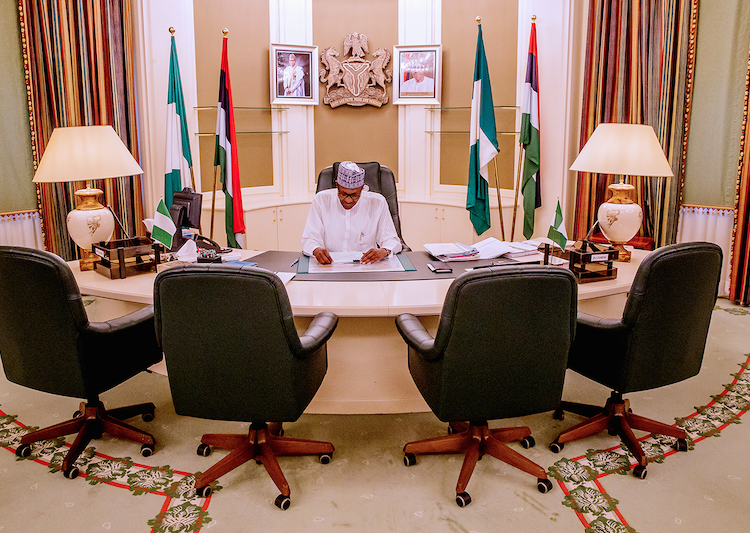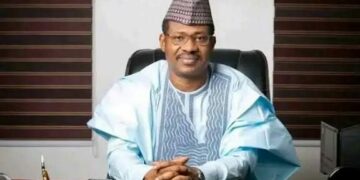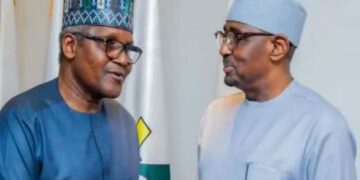By Ebesekaye Rukevwe
The period from January 2 to January 4, 2012 were historic for our country as hundreds of thousands of Nigerians in major cities across the country took to the streets to protest the government’s cut on fuel subsidy announced on January 1, 2012. What a harsh way to wish Nigerians a Happy New Year. It must have taken a lot of guts but also came across as if the government did not anticipate the outrage from Nigerians who were faced with the reality of buying fuel at about double what it was sold just days before.
The face of the protest was opposition political party leaders, labour unions, civil society groups, celebrities, and prominent individuals from all walks of life. The government was flayed and verbally abused until it eventually ceded to the demands of Nigerians. The protest was a combination of strike actions, civil disobedience, demonstrations, social media activism and unfortunately, some Nigerians lost their lives during the protest.
While some critics would say that cutting of fuel subsidy by the government was barbaric, unreasonable and a deliberate attempt to inflict pain on the people it was meant to serve, others will argue that there wasn’t adequate consultation across board with key stakeholders and enlightenment of the public as to why the government considered such drastic action necessary. However, this does not negate the fact that there were Nigerians who believed
that the government has taken a courageous and auspicious decision.
The motivations for participating in the protest varied. Some individuals instigated the protest for political gain, while others supported it due to a lack of understanding of the issue. Some individuals sought to gain fame, while others who were already famous believed it was their responsibility to use their influence to speak out on behalf of those suffering. With the prominent use of social media during the protest, it was difficult to remain humming and hawing in one’s stance.
The “Occupy Nigeria” protest was a monumental event for opposition political figures who were gaining heroic status in the heart of the ordinary man. This propelled them even further as subsequent anti-government rallies and protest were organized by opposition leaders who were gradually winning the sympathy of many Nigerians.
April 2014 could be considered a tipping point as the actions of the Boko Haram terrorist group provided opposition leaders with an opportunity to portray the government as a villain, an incompetent and ineffective bunch led by President Goodluck Jonathan. This resulted in a concomitant raucous within and outside Nigeria as well as a hurricane of condemnation, accusation, and disappointment locally and internationally. Protest erupted in major Nigerian cities as well as cities around the world. Social media played a significant role in amplifying the global response to the situation, as the hashtag #BringBackOurGirls became a widely trending topic, with world leaders and celebrities joining to lend their voices to the cause.
Opposition leaders, who by that time had consolidated their forces into a formidable political party, appeared to benefit from the Chibok girls’ unfortunate incident as they lampooned the government for their actions and inactions. This provided a powerful tool properly wielded by the opposition to engender public resentment against the government and simultaneously promote their promises to Nigerians who were sentimentally disposed to anyone but the government. Lots of lofty promises were made by the opposition during the campaign leading up to the 2015 general election, which contributed to the then incumbent government losing power.
It was a new dawn for Nigeria, or so it seemed, until glaring signs began to emanate that more propaganda was sold to Nigerians than actual plans to address the issues facing the country. The opposition had promised to “fix everything” that was wrong and said they had the capabilities to do so in four years, stating that the problems facing the country were not “rocket science”. Howbeit, this is 2023 and if you think of problems currently bedeviling Nigeria such as insecurity, a struggling economy, power shortages, poverty, weak currency, fuel prices and unavailability, wasteful and fraudulent subsidies, corruption, poor education and health, suppression of media and free speech, among others, are still prevalent, despite these being issues the opposition had promised to resolve largely or completely by 2019. Now, each Nigerian can form their own opinion and give their verdict on the matter.
After almost eight years in power, the overwhelming assessment of Nigerians is that there is an opposition in power. They have been unmasked as the opposition to the emancipation of Nigeria and progress of Nigerians. While some politicians and sympathizers of the current government try to absolve themselves of responsibilities for the current woes we face or give excuses for their failure by using phrases like “the president is an honest man with good intentions but surrounded by dishonest self-seeking politicians”, it’s only a callous reprobate and sycophant that will insinuate that this government and ruling party has done well to deserve another chance at power in whatever form or shape they are presented. Even
the most ardent supporter of this government knows the bulk stops on the table of the president who is head of government and by extension the ruling party who has been at the helm of affairs for almost eight tumultuous and painful years.
As another election approaches, the opposition in power still wallows in self-aggrandizement and grandiloquent arrogance, going around Nigeria in their shameless overbearing demeanour chunning out same lies and fake promises they failed to fulfil after about eight years in office. Now masquerading themselves with the same old faces that brought calamity upon us as if Nigerians have forgotten the events of the past eight years. It is disheartening when they disregard the needs and opinions of Nigerians, but it’s even more egregious when they refuse to acknowledge their mistakes but still, they are gallivanting around the country campaigning instead of soberly going around asking Nigerians for forgiveness.
Fool me, once shame on you but fool me twice, shame on me. Thankfully, Nigerians are a peaceful people and will not resort to hauling stones at these snollygosters when they come with their sham message of renewed hope. Nevertheless, Nigerians are not docile, and they know who the real enemies are, they know that the opposition to their progress and a good life are the people currently in power but through democratic means and the power of their votes, they will work to legally remove these obstacles and usher in a new era where leaders with compassion, capability, and accountability preside over the affairs of the country, ensuring that those who oppose the freedom of the Nigerian people will never again attain power.




